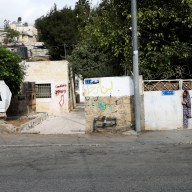By Kieran Guilbert
DAKAR (Thomson Reuters Foundation) – Africa’s arid Sahel, a fertile breeding ground for militancy and organized crime, has been neglected by donors who must tackle the region’s displacement crisis to stem radicalization and refugee flows, a leading aid agency said on Friday. Millions of people have been uprooted by violence or smuggled across borders by militant groups and criminal networks in a region long ignored by the humanitarian community, according to the Norwegian Refugee Council (NRC). The United Nations last December appealed for a record $2 billion for the Sahel’s 2016 aid plan, but it has been less than a quarter funded to date.
The Sahel band, which stretches from Senegal to Eritrea and lies south of the Sahara desert, topped the NRC’s annual list of neglected displacement crises, followed by Yemen and Libya.
At least 4.5 million people in the Sahel have been forced from their homes by violence, a number which has tripled since 2014, according to the U.N. Office for the Coordination of Humanitarian Affairs (OCHA). “Preventing conflict and refugee flows, stopping terrorist groups from taking root and combating organized crime are all intertwined,” said NRC senior adviser Richard Skretteberg.
“You can’t fight terrorism without creating development, and can’t beat organized crime unless you solve the refugee crisis and create jobs,” he told the Thomson Reuters Foundation. With its vast, loosely controlled desert expanses and porous borders, the Sahel has proved to be fertile soil for the rise of Islamist militancy in one of the world’s poorest regions.
The combination of poverty, increased drought and shrinking water resources, and a lack of work is leaving people prey to recruitment by militant groups such as Al Qaeda in the Islamic Maghreb (AQIM), Boko Haram and Islamic State, Skretteberg said. More people could be recruited as the Sahel’s population continues to boom, and militants and criminals smuggling people to Libya and across the Mediterranean Sea to Europe feed off each other and exploit corruption and weak governance, he added. “Terror creates conflicts and refugees, and weakens state institutions, which criminals know how to exploit. Criminal activity helps ensure a constant flow of money to terrorists.”
Aid agencies in the Sahel must consider organized crime in their response as gangs often target the most vulnerable people, trafficking and abusing them for profit, Skretteberg said.
They should also prioritize protection and education to prevent children and young men from being recruited by militants and give them hope of finding work in the future, he added.
(Reporting By Kieran Guilbert, Editing by Ros Russell; Please credit the Thomson Reuters Foundation, the charitable arm of Thomson Reuters, that covers humanitarian news, women’s rights, trafficking, corruption and climate change. Visit news.trust.org)















